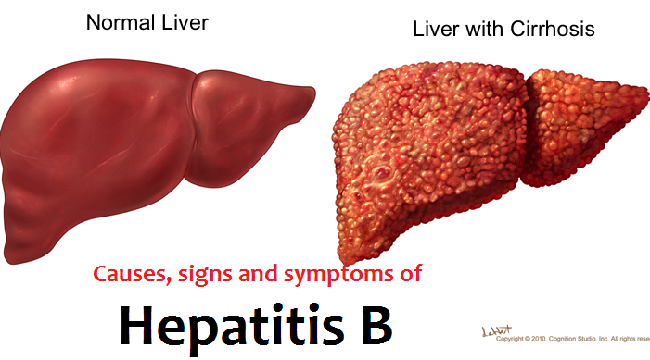Dr Tasiu Ibrahim, a medical doctor and a fellow of the Kashim Ibrahim Fellows (KIF), says an average Nigerian is 60 per cent more likely to contact Hepatitis B Virus.
Ibrahim stated this in Kaduna on Monday at the roll-out of a five-day sensitisation campaign against Hepatitis B Virus (HBV), as part of the fellowship Community Service Week (CSW).
Gov. Nasir El-Rufa’i had in August 2018 inaugurated the KIF, a one-year programme for 16 fellows from all over Nigeria to develop and nurture their leadership abilities and public service.
Ibrahim said at the inauguration of the five-day long campaign at Kaduna Polytechnic, Kaduna State, that Nigeria was among countries with the highest prevalence of HBV.
He said that with a national prevalence of about 15 per cent, the virus has infected about 27 million Nigerians.
According to him, less than five per cent of the 27 million infected Nigerians know they were infected.
“Chronic HBV disease also affects 350 to 400 million people globally, with at least one million persons dying from the disease every year.”
He said that the sensitisation would be conducted in partnership with various government and nongovernmental organisations.
He outlined the line of activities to include outreach campus camp, rally at Sheik Abubakar Gumi Central Market, outreach to people living with disability, training for hairdressers and barbers, and public lecture.
“The objective of the campaign is to raise awareness on HBV, provide free voluntary screening and counselling and engage stakeholders to advocate for policy change regarding the virus.
“Hepatitis B infection, caused by the HBV is commonly transmitted via body fluids such as blood, semen and vaginal secretions.
“Sexual activity, accidental needle prick or sharing of needles, blood transfusions and organ transplantation are other routes for HBV infection,” he said.
He explained that infected mothers can also pass the infection to their new-born at the point of delivery.
The fellow equally attributed the high rate of HBV infection to unwholesome or unhygienic socio-cultural practices in the country.
“Many Nigerians go to hairdressing and barbing salons without their manicure, pedicure or barbing kits and share objects with people they do not know.
“Some people still give tribal marks and perform circumcision on children with unsterilised instrument.
“These among others are significant means of spreading the infection besides sexual route,” he added.
Also speaking, Ms Jemimah Jatau, in charge of Media and Communication, said that the CSW, tagged “KIF Against Hep-B”, was orgainsed to educate, screen, sensitise and counsel residents about the Hepatitis B Virus infection and the need to know their status.
“The disease is three times more infectious than HIV/AIDS because it leads to liver failure, cancer and ultimately death in infected persons.
“With this frightening phenomenon, the ‘KIF against Hep-B’ CSW programme is a timely intervention to join the global fight towards combating the rising incidence of new infections in Nigeria and Kaduna state in particular.
“We want to interact and communicate with the general public, particularly hairdressers and barbers on the dangers of Hepatitis B Virus, its infection and method of prevention.
“We will also educate hairdressers and barbers on international best practices to prevent the spread of the virus, discuss with people with disability,” Jatau added.
Some of the students commended the KIF for bringing the free counselling and testing to their doorstep.
One of them, Mr Mu’azu Mu’azu said he does not know much about Hepatitis B, adding that the campaign has provided him the opportunity to learn about the virus and know his status.
Another student, Ms Blessing Joseph, who equally do not know her status lauded the initiative and described it as ‘life-saving’.
The News Agency of Nigeria (NAN) reports that the campaign began with Outreach Campus Camp for students of Kaduna Polytechnic after a rally round the school to sensitise students about the free services.
After the rally, the students were counselled on reproductive health issues, free HIV, Hepatitis B and C test.
The KIF also solicited for voluntary blood donation which was handled by National Blood Transfusion Services (NBTS). (NAN)
Nigerian, 60 per cent more likely to contact Hepatitis B – Fellow

